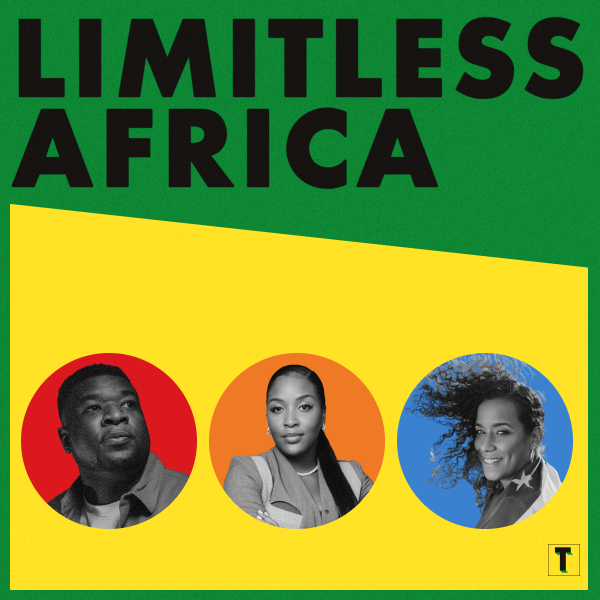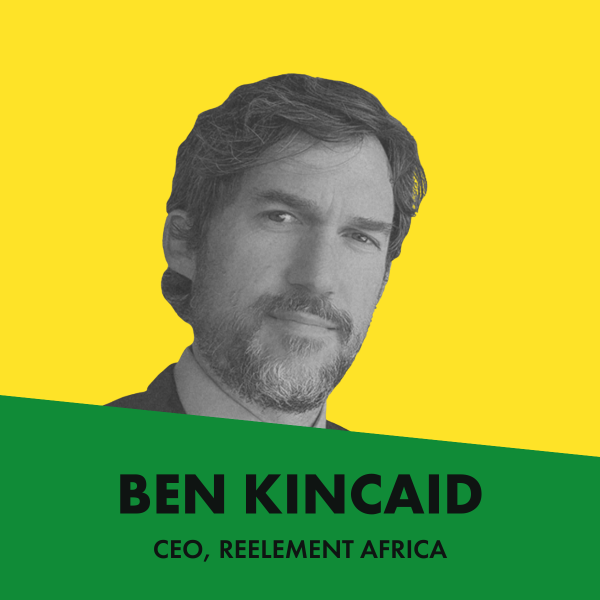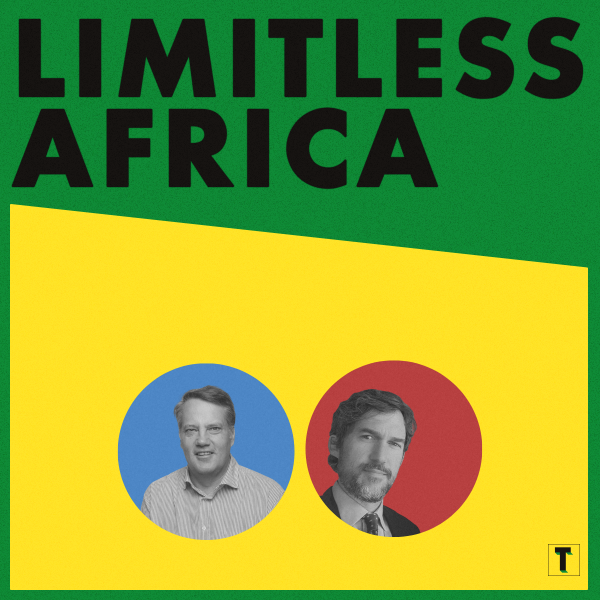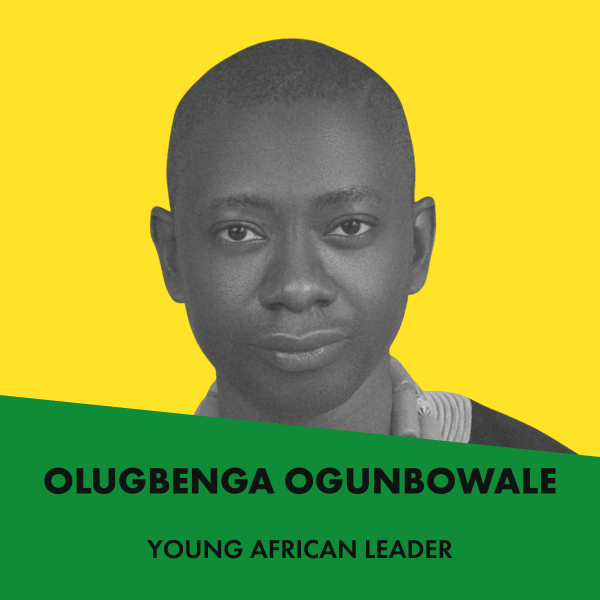This episode, we’re talking repats
Welcome to Limitless, the podcast that asks the questions that matter for Africa.
In each episode, we’re asking three guests one question that matters to Africans. We’re looking for African solutions to African problems.
The Limitless Podcast is supported by the U.S. Department of State and the Seenfire Foundation.
Many diaspora Africans are choosing to return to the continent. These ‘repats’ – as they’re often known – are keen to seize new opportunities. But they also return to give back – building businesses, families and fulfilling lives on the continent. In this episode, three repats tell us how and why they came to Africa.
Our first guest is Joli Moniz who left New York for Cape Verde. She set up a tourism business called A Vontade Tours. She helps other repats settle into their new life. Our Lusophone host Simone Spencer spoke to her – here’s their conversation.
Simone: First off, Joli thank you so much for being here with us. We would like to know did you leave Cape Verde Were you born abroad?
Joli: First thank you for having me. truly an honour. So no, I was born in the States. I was. I’m a third generation Cape Verdean American so that means my great grandparents on both sides. My mom and dad’s side. Were actually born in Cabo COVID and had to emigrate just to survive at the time. And at the age of 15. I travelled to Cabo bed with my family for the first time. And the rest is history, like my love for the country and my background grew even stronger.
Simone: Fantastic and when and why did you decide to come to come Cape Verde?
Joli: So after having visited three times, but only for vacations like two weeks at a time, never wanting to leave so I said… one day One day I’m going to you know spend a few months or summer there and learn how to talk Creole but you know how life is and in the US especially intense careers, jobs that give you very little vacation time. I was maybe almost not burnt out but just craving more. So I loved my career, but I wanted more, I wanted more culture. I wanted something a little bit more fulfilling and I also had this entrepreneurial bug in my system. So I told my job, I was not going to return and sign a new contract for the following year and told my family by the way, I’m finally doing it. I’m moving to Cape Verde but at the time I said one year and it’s been now 11 and a half years.
Simone: Wow. 11 and a half years. What has it been like for these 11 and a half years?
Joli: Okay,so I’ll first say that it was not an easy transition. By any means coming to a country even of my background, but still a new country without a grasp of the language not fully at all. Without a home, without a job, I look back and I’m like was I crazy? But no, I just had this strong feeling in my gut that that’s where I needed to be.
Simone: That’s beautiful. And since you’ve been back What have you been doing to support yourself?
Joli: Gotta pay bills, right? So within the first few months, I was doing some side work. I was doing some photography. Actually the first several years I would teach English classes. But I also started to just have lots of visitors come again like that first year people thought okay, Jolie’s only gonna be there for a year we got to take advantage and realise how much I enjoyed showing them around showing hospitality or what we call ‘morabeza’. Trying to convey the authentic culture of Cape Verde to visitors. So I opened it to our company called Avontade Tours. But the biggest thing is helping to encourage other people from that the diaspora to come home whether it’s just for the trip, to relocate to invest to retire, anything is good for Cabo Verde and it’s good for them personally. So it’s just incredibly meaningful.
Simone: So would you say that there are more people deciding to come back?
Joli: More and more I’ve seen a shift in the last maybe right before the pandemic and it’s definitely sped up this past year like more and more K burdens from the diaspora from the world wanting to come home. People are coming back home realising you know Wait a minute, thanks in large part to social media. They’re realising the truth about Africa. Wait a minute, you know, a couple of it is safe. It’s stable. It’s beautiful year round. So definitely a huge shift. And it’s been it’s been amazing to see…
Paola Ndengue is a real global citizen! Based in Abidjan, Côte d’Ivoire, she is originally from Cameroon though she spent most of her life in France. She’s worked in fashion, music and marketing. She now runs a popular newsletter on media and the creative industries in Africa called Africa Digest. She started off by telling me why she moved to Africa.
Paola: So why did I decide to come back to Africa? It’s because I felt that will be more useful on the continent rather than operating from outside from the diaspora. I felt like there was so much to do here, helping local talents. Also, helping with maybe I won’t say fixing the narrative. That’s not my core goal, but at least participating in making things happen on the ground. That was basically why I decided to come back.
Claude: why did you actually come back to Africa, and specifically Cote d’Ivoire?
Paola: I built a media in France with other business partners. It was already focusing on Africa. So doing those deep dives into African pop culture, I really progressively realised that something was happening again, it was 2012, 2013. So the whole Africa rising narrative was already kind of around but not as big as it is today. But I think I had kind of the feeling that something was happening and I wanted to be a part of it, but again, ought to be on the ground and not just reporting from outside. So I think that’s the first thing then when I made that decision, of course, I had to look at okay, what would be the best choice in terms of the country, the city what would make sense? So I just basically had a very rational approach, not thinking must necessarily go back to the country of my parents, but more like, what again, what makes sense from a business and work perspective, especially in terms of impact. So were were the people that I would eventually work with on a daily basis, the international brands, the opportunities, basically.
So my initial plan was going to Lagos and then, but it was taking a little bit of time, I had an opportunity in Abidjan, and Abidjan was in my top three after Accra. So I just decided, okay, I’d rather be on ground and I can always go to Lagos later on. And that’s how 10 years later, I’m still in that job.
Claude: Got it. And did you feel like you needed to be on the continent to realise your full potential?
Paola: Probably yes. Because when I left France in 2014, we’ve had… I mean, the backstory is that we have raised monies for crowd funding for Fash is Black so we were able to raise $50,000 around 2011, through our community online, we needed of course, extra funding to keep the business going. So we’ve done the whole circus of presentations and business plans to investment funds and venture capital companies or organisations and stuff. And basically, coming out of it after a couple of months. What basically we were told, my partners and I was that we were too ambitious and I think I took it as a sign that I wasn’t, I was not necessarily in the right space. Because if the vision that I already had for Africa was considered too ambitious, and maybe I had to go to Africa directly, and try to have to, you know, be more impactful on ground so clearly, I think that contacts kind of helped I mean, I had in mind to to to come back but it really make things happen way faster.
Claude: What’s next for you?
Paola: What’s next for me is right now I am focusing on Africa Digest so my newsletter that I’m quite turning into a media company. So the next step for me is to launch the paid version because I want to add a lot more content, a lot more services. The last two or three years I’ve been really focusing on building a community around what I believe in. So now I have these people around me that are from the diaspora or from the continent, they have very specific needs. They need specific type of information and services. So the idea basically now is for me to, now that I kind of have the communities now, to build the products and services for them. So Africa Digest is one one of those key services or products, let’s say, and now I’m just kind of working with my team and you know, raising more interest around what we’re doing.
Abdul Abdullah is a Ghanaian American cultural entrepreneur and founder of the AfroFutures Festival – it’s a music and culture festival based in Accra. He grew up in the Bronx but now does business in Ghana. He started off by telling me about spending time in Ghana as a child.
Abdul: Ghana is definitely Africa. You know, it was just an amazing experience. It was culture shock. I mean, very different from America. Obviously, at the time, they provided discipline in schools, so they would actually be you know, so there was a lot of respect in order. So yeah, it was interesting.
Claude: I had the same in Togo when I was growing up in Togo. Tell us now about this experience discovering America, coming to America, experiencing America?
Abdul: I grew up in New York, the Bronx house, one of the largest populations of Ghanaians in the US, you know, so everyone was my uncle, everyone was my aunt.
We associated fun and joy and happiness when America was younger, mostly because our parents were there, but also because we have access to candy stores and parks and things of that nature that didn’t really exist in an accessible way in Ghana. So coming back to America, we associated with fun. And then it also allowed me to learn how to ask questions. You know, my dad always encouraged us to ask questions, and to challenge authority, how to, you know, be inquisitive about people, right asking why Jay Powell may agree or you know, just to follow up questions with some of the things I got to learn. You know, when I came back to the US,
Claude: You spoken about yourself being a diaspora African in America. What do you mean by that?
Abdul: I mean, well, to my parents, I’m American. I grew up around within school, and my neighbourhood, saw me as the African kid. So you kind of live in that middle space where, you know, you almost have unique traits of both both parts of yourself. And I see that in myself, right. So I totally understand culture as a black American in America, but I also understand culture as an African American and an American in Africa.
Claude: we wanted to kind of ask you, how being Ghanaian actually change your perception of also being American?
Abdul: I mean, I think that all the privilege of knowing a culture that I was grown into, that’s very familiar to my mom and dad that’s familiar to my grandmother and everybody I met when I was in Ghana, but I also have the freedom of being American and, and growing up in that culture and having the freedom of thought freedom of wanting more for myself. I think that is the joy of just having both right having the limitless foreign experience but also the grounding of culture.
Claude: Absolutely. And a lot of Ghanians have achieved a lot outside of Ghana and are now doing more in Ghana. Whether it’s the world of architecture, film, fashion, publishing, it’s one of those countries that is notable for high achievers in the diaspora who then want to reconnect with the country, which I find really fascinating.
Abdul: Yeah, absolutely. It’s inspiring, I think, since we know that remittances far outweighs the amount of aid we receive. I think that we need to lean into that more, so that we can see a development that we create, as Africans as Ghanians in our own country. Provide opportunities and jobs to people in our own country For Africa By Africa. It’s an opportunity that we all need to continue to pay attention to, not just for Ghana but across the diaspora.
Thanks to all our guests – I really enjoyed listening to the twists and turns in their personal journeys. If you enjoyed listening to these conversations, please rate and review this episode on Apple, Spotify or your preferred podcast platform. Subscribe to the podcast and share this episode with all your friends to get the word about Limitless Africa out there.









